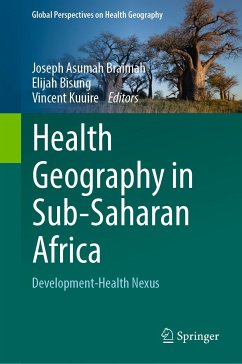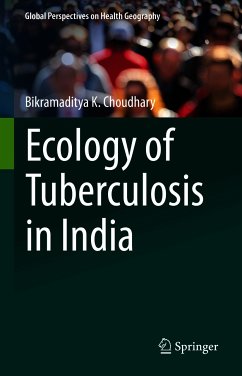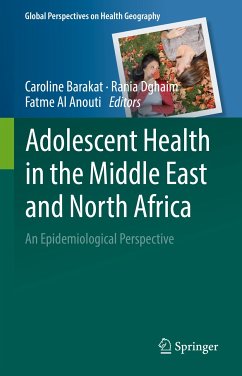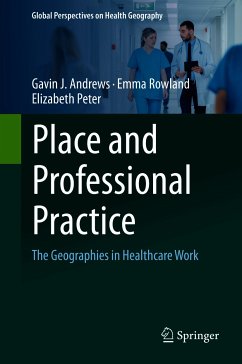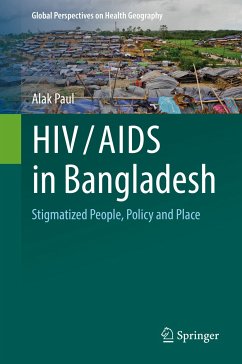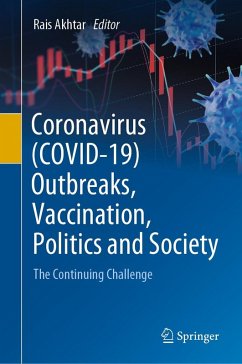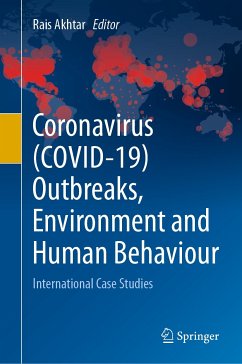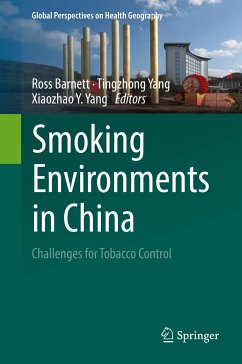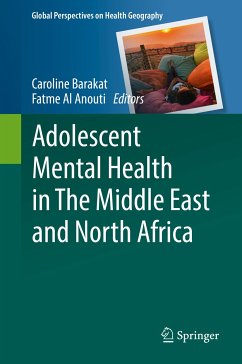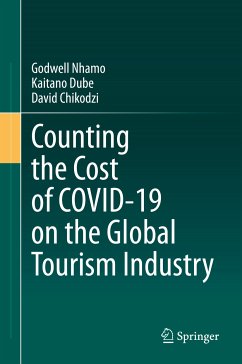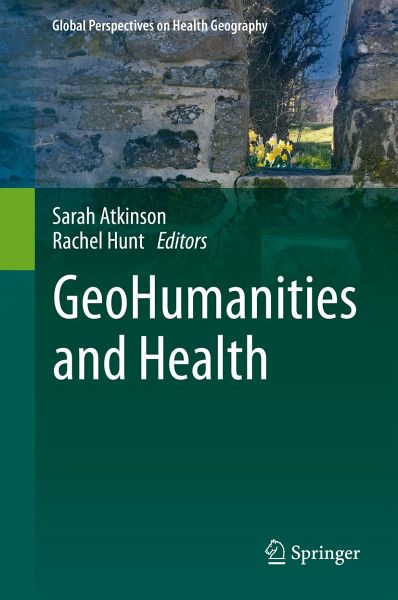
GeoHumanities and Health (eBook, PDF)
Versandkostenfrei!
Sofort per Download lieferbar
72,95 €
inkl. MwSt.
Weitere Ausgaben:

PAYBACK Punkte
36 °P sammeln!
The chapter entitled "Truth or Dare; Women, Politics, and the Symphysiotomy Scandal", by Oonagh Walsh, was published in this book "GeoHumanities and Health" by Springer Nature AG. The chapter contained defamatory statements detrimental to the reputations of Marie O'Connor, author and research sociologist specialising in women's health, and Colm MacGeehin and Ruadhán MacAodháin, solicitors in private practice. The chapter has been withdrawn and will not be republished. Oonagh Walsh and Springer Nature Switzerland AG apologise to Marie O'Connor, Colm MacGeehin and Ruadhán MacAodháinThis volu...
The chapter entitled "Truth or Dare; Women, Politics, and the Symphysiotomy Scandal", by Oonagh Walsh, was published in this book "GeoHumanities and Health" by Springer Nature AG. The chapter contained defamatory statements detrimental to the reputations of Marie O'Connor, author and research sociologist specialising in women's health, and Colm MacGeehin and Ruadhán MacAodháin, solicitors in private practice. The chapter has been withdrawn and will not be republished. Oonagh Walsh and Springer Nature Switzerland AG apologise to Marie O'Connor, Colm MacGeehin and Ruadhán MacAodháin
This volume brings together research in the GeoHumanities from various intellectual perspectives to illustrate the benefits of humanities-inspired approaches in understanding and confronting historically entrenched and recently emergent health-related challenges. In three main sections, this volume seeks to foreground the richness of work entangling medicine and health with the concerns of geography and of the Humanities. This volume will be of interest to academics and researchers in the Geographies of health and medicine, social sciences in GeoHumanities, and health humanities, and students in programs focusing on the humanities and health.
In the book's first section, Bodies, the authors explore the material, sensory and more than physical capacities of bodies in accounting for experiences of death, air raids, immigration, dance therapy, asthma and blindness. Section two, Voice, addresses the nature of evidence, HIV/AIDS policy, patient voices in animal research, homelessness, and constructions of truth. The final section, Practice, focuses on creative writing, as well as the pedagogic tools of teaching with the asylum, the creative practice of nuclear emergency planning zones, arts-based care for the elderly, and cartographic practices within health research.
This volume brings together research in the GeoHumanities from various intellectual perspectives to illustrate the benefits of humanities-inspired approaches in understanding and confronting historically entrenched and recently emergent health-related challenges. In three main sections, this volume seeks to foreground the richness of work entangling medicine and health with the concerns of geography and of the Humanities. This volume will be of interest to academics and researchers in the Geographies of health and medicine, social sciences in GeoHumanities, and health humanities, and students in programs focusing on the humanities and health.
In the book's first section, Bodies, the authors explore the material, sensory and more than physical capacities of bodies in accounting for experiences of death, air raids, immigration, dance therapy, asthma and blindness. Section two, Voice, addresses the nature of evidence, HIV/AIDS policy, patient voices in animal research, homelessness, and constructions of truth. The final section, Practice, focuses on creative writing, as well as the pedagogic tools of teaching with the asylum, the creative practice of nuclear emergency planning zones, arts-based care for the elderly, and cartographic practices within health research.
Dieser Download kann aus rechtlichen Gründen nur mit Rechnungsadresse in A, B, BG, CY, CZ, D, DK, EW, E, FIN, F, GR, HR, H, IRL, I, LT, L, LR, M, NL, PL, P, R, S, SLO, SK ausgeliefert werden.



